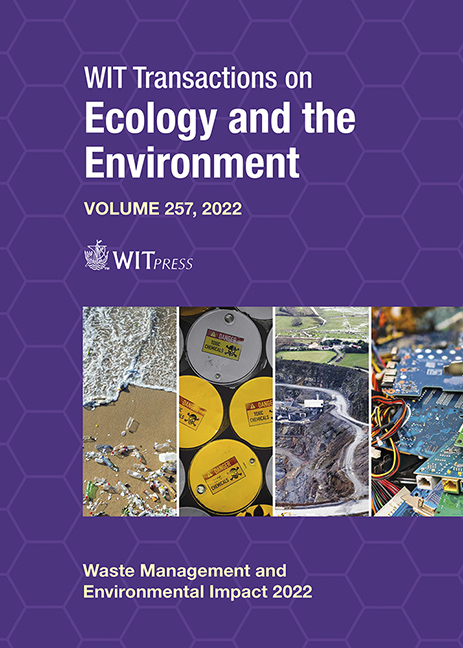ENVIRONMENTAL IMPACTS OF REVERSE OSMOSIS IN WASTEWATER TREATMENT VERSUS DESALINATION TO MEND THE WATER CYCLE: A LIFE CYCLE ASSESSMENT
Price
Free (open access)
Transaction
Volume
257
Pages
11
Page Range
27 - 37
Published
2022
Paper DOI
10.2495/WMEI220031
Copyright
Author(s)
ESRA ALEISA, ANWAR ALJUWAISSERI, KHAWLA ALSHAYJI, ASMAA AL-MUTIRI
Abstract
Sustainable water production is one of the top five challenges facing humanity within the upcoming decade; for arid regions, this challenge is aggravated. In this research, we evaluate the fastest growing technology in water treatment, reverse osmosis (RO), for both municipal wastewater treatment and seawater desalination to combat the challenges of water scarcity and climate change. We conduct a life cycle assessment (LCA) to evaluate the environmental impacts of municipal wastewater treatment and seawater desalination for a consistent functional unit using ISO 14040/44 standards. The modeling concept adopts a cradle-to-gate consequential paradigm. The life cycle inventory is based on field data collection from one of the largest wastewater RO plants worldwide, as well as reports, literature and ecoinvent database processes. The life cycle impact assessment is conducted on both the characterized and normalized levels using the ReCiPe method. The results are intended to assist policy-makers in better managing water resources. The study is applied to Kuwait but has wider repercussions.
Keywords
reverse osmosis, desalination, wastewater, life cycle assessment (LCA), Gulf Cooperation Council (GCC), Kuwait




